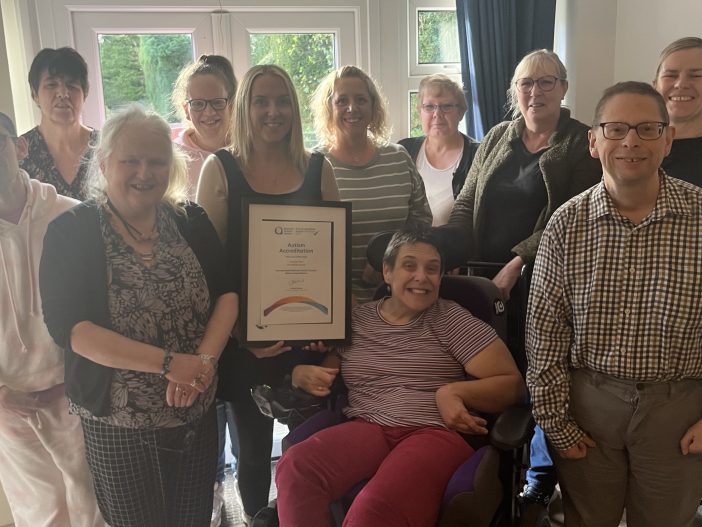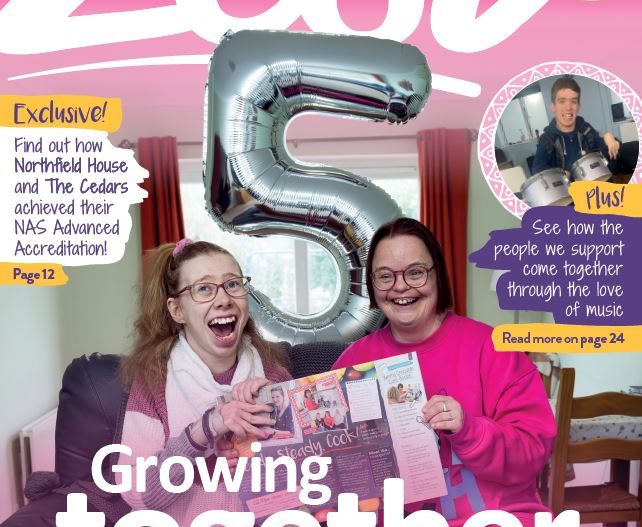What is your job like supporting people with autism?
As part of World Autism Awareness Week, we spoke to Alison Murray, Registered Manager at Broadview, a residential care home in Hampshire. Broadview has been accredited by the National Autistic Society (NAS) and is experienced in providing support to those with autism. We asked questions about the role of a support worker in providing care and support for autistic people.
What’s important to you when supporting people with autism?
The most important thing is getting to know the people we support really well. You can only read and learn so much off paper and out of books. But practical hands-on active support is so important, because that’s where you learn the most. Being a part of someone’s journey to independence is such a wonderful feeling. You see people achieve great things with our support and because of that their life has changed for the better.
What is active support?
Active support is where we work with the people we support to improve their skills. We help them be more self-sufficient. Some of the things we help people achieve includes completing their food shopping online, cooking their own food, managing their personal care with reduced prompts and other independent living skills. We do this by creating a person-centred care plan and work on it with the people we support.
What is a person-centred care plan?
A person-centred care plan is co-created with the people we support and their support team. This is a plan to help individuals achieve their goals and work on fulfilling their passions and desires. Some of these care plans could entail going on their very first holiday or learning to go food shopping.
Before we create a person-centred care plan, we do an environmental and a sensory assessment. We look at how they like things done because some people are very particular. It’s important that this is all written down for the support team to follow.
This plan also provides structure for staff, especially around personal care. We make a record of the care and support we provide and note down what we do and how we do it. This is called a support guideline and is written in the communication book. Staff add to this book for the rest of the team to read and refer to when supporting people. This helps them understand the needs of the people we support. This process ensures that the care we provide is consistent and personalised.
What autism training did you complete?
All staff have to complete specialism training, which takes two days. This is currently done online due to COVID-19. Usually we have face to face sessions where we do some exercises to experience the perspective of someone with autism. For example, we do an exercise where we wear virtual glasses and can see the room from an autistic person’s point of view.
The training is structured around completing what we call simple tasks like opening a packet of sweets. In the face to face session we put gloves on the wrong hands and try to open a packet of sweets. When we did this exercise, it proved to be challenging because the gloves on the wrong hands made it difficult. It’s these exercises that give us a real experience of what people with autism see, feel and hear. The training gives us some good insights, it’s thorough and opens up people’s minds.
What have your learned working at an autism specialism service?
One jigsaw piece doesn’t fit the whole puzzle. Every piece is different. Everybody’s different. There’s a perception of autistic people, that they are very organised, like everything in order and like a routine. That doesn’t apply to everybody with autism because they are unique people with different traits.
What would you say to someone considering a job as a support worker?
I would say just do it, actually just do it! There is so much potential, so much training out there for you to do this. You’ve got the chance to do diplomas. There’s so much you can learn and it’s an enjoyable job. I started in 2006 as a support worker and 16 years later I’m still here!
We have jobs available nationwide at our autism specialism services. You can find current vacancies at https://careers.voyagecare.com/.

 Information
Information 

